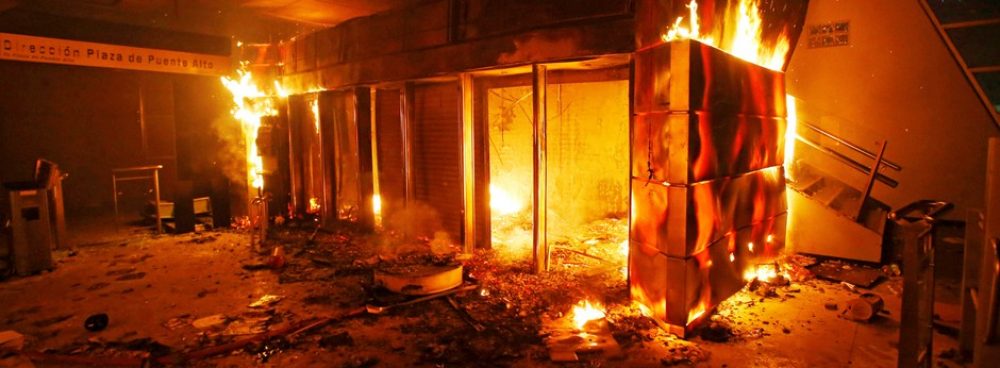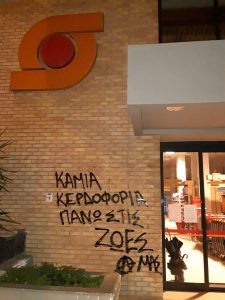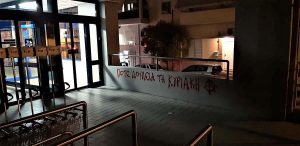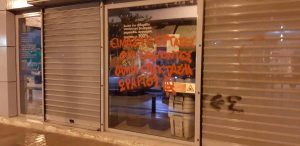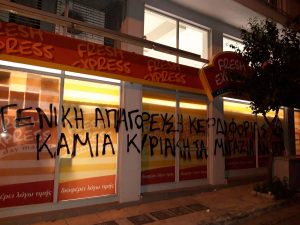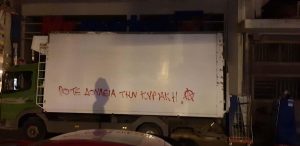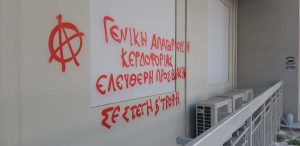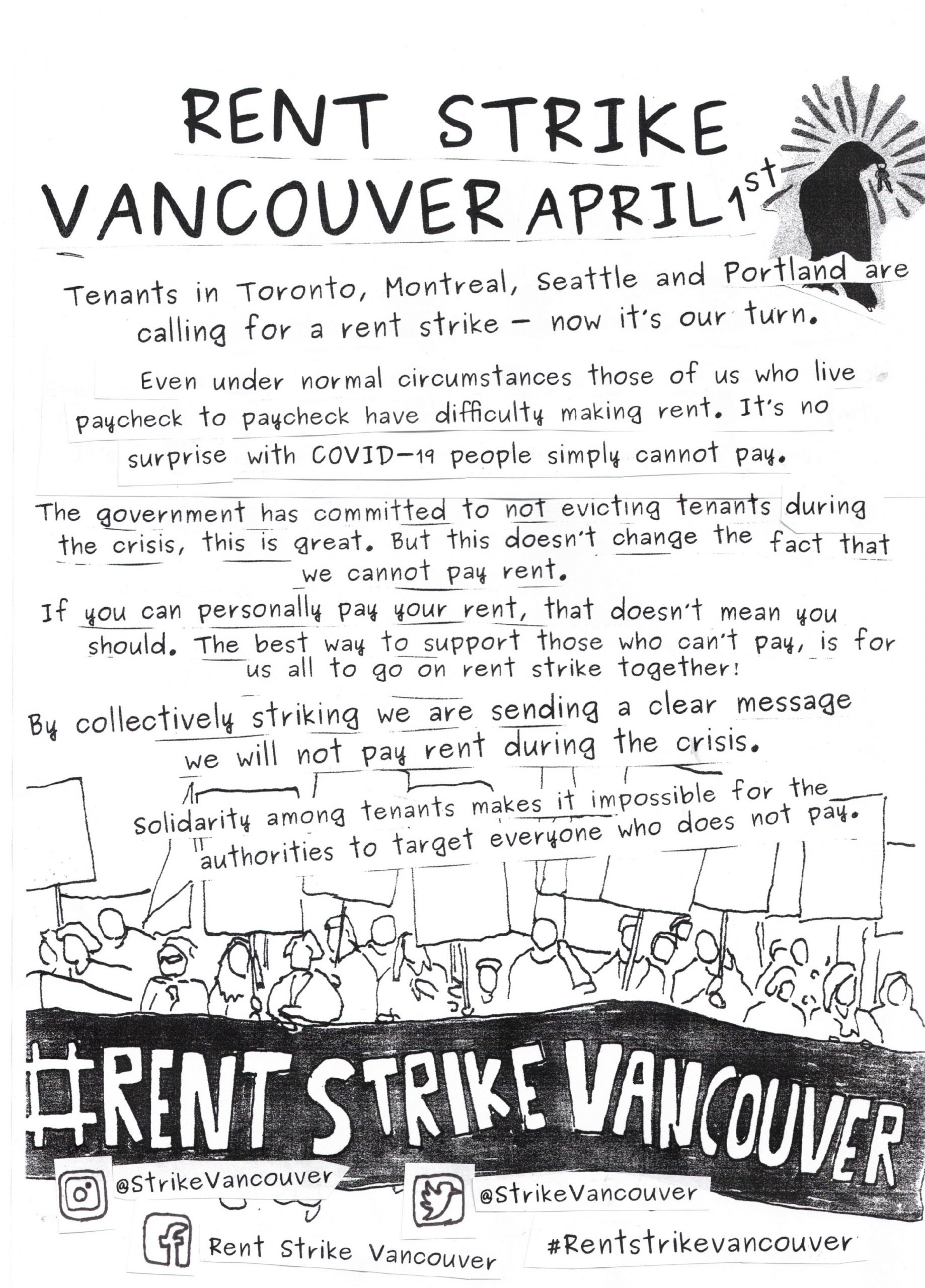We have received a second translations with some corrections, so the content is quite different from the previous english version
Plagues, indeed, are a common thing, but it is hard to believe in
plagues that crash down on your head. There have been as many plagues in
the world as there have been wars. And yet, plagues and wars always find
people unprepared.
(Albert Camus, The Pest)
Chaos…or not?
The arrival of the epidemic in Italy is the starting point of a
unprecedented upheaval. The economy collapses. Hundreds of billions of
euros have disappeared. Shops are being closed. Public offices, schools,
gymnasiums… everything is blocked. Only supermarkets and shops for
basic needs remain open and are emptied daily. People often leave their
homes only to go shopping. They don’t talk to each other out of fear,
everyone tries to get everything done as soon as possible. It seems to
be a pre-apocalyptic scenario, some might think that this is the sign of
a period of chaos. But today’s situation seems to be quite different
from chaotic: millions of people have given up leaving their homes in
the name of a collective responsibility filled with patriotism. The
state commands and citizens obey; some out of fear, others to avoid
retaliation. Relationships are mostly mediated by digital media, and
human contact has become a violation of public health. The economy is
based on web-based platforms, large multinational companies manage all
the movement of goods, and supermarket chains become the main point of
reference for satisfying needs. Classes are taught remotely; surely the
classrooms will be quiet now… How is this chaotic?
Of course the situation in the hospitals by no means under control, but
why should that be so surprising? Has the state ever cared about
people’s health? Illness is not just a threat, it is an opportunity for
profit or control.
***
But we also know that in their order, disorder, rebellion, the feeling
of denied life lies just below the surface, more or less accessible and
understandable for the individual. There is an unexpressed potential in
terms of desire. The more this potential is banished and denied, the
more dangerous it becomes, because it could catch fire at any moment. Or
maybe not, maybe everything is already lost, and perhaps only we (who is
we?) still feel passions and desires?
But if neither of these two possibilities changes the individual
decision to continue the attack on power, it changes the way we can
reject the idea of the inevitable eternal reproduction of the present
state of things. Let us empower ourselves by trying to perceive the
stifled tension, the idea that another world is possible, or that this
is not the best, the only possible world.
***
Alternative or co-administration?
However, as happens in many historical moments when the authority of the
ruling social system is not undermined at the root, the alternatives
take only a few steps along a different path before they are caught in
the misery of co-administration.
What does it mean today to help with the distribution of masks? It would
mean either making arrangements and coordinating with civil defence and
the city administration, or it would mean that military and police
repression is just around the corner, because laws and decrees
prohibiting leaving the house are being violated.
This social system has created a world in which 7-8-9 billion people
live. As Huxley said in his prophetic novel “Brave New World”
“Stability. No civilization without social stability. No social
stability without individual stability.” His voice was a trumpet.
Listening they felt larger, warmer.
The machine turns, turns and must keep on turning–for ever. It is
death if it stands still. A thousand millions scrabbled the crust of the
earth. The wheels began to turn. In a hundred and fifty years there were
two thousand millions. Stop all the wheels. In a hundred and fifty weeks
there are once more only a thousand millions; a thousand thousand
thousand men and women have starved to death.
Wheels must turn steadily, but cannot turn untended. There must be
men to tend them, men as steady as the wheels upon their axles, sane
men, obedient men, stable in contentment.
Crying: My baby, my mother, my only, only love groaning: My sin, my
terrible God; screaming with pain, muttering with fever, bemoaning old
age and poverty–how can they tend the wheels? And if they cannot tend
the wheels … The corpses of a thousand thousand thousand men and women
would be hard to bury or burn.”
***
Which problems are ours, and which are Empire’s problems?
Do we have to solve the pollution problem? We didn’t study biology.
We’re tearing down a transmission tower to shut down a factory.
Must we solve the problem of poverty? We are not financing an ethical
bank, we are robbing it and we are trying to destroy the world of trade
and also that of the fraud called “fair trade”.
Must we solve the problem of disease? We are not studying medicine, we
are trying to break up this social system. Because revolutionary actions
do not restructure the prison, nor do they seek to improve it. They tear
it down to clear space, to give life a chance to flourish.
In fact, otherness can only arise where the power of the state does not
exist, and it suffocates when these spaces in which it tries to
germinate do not expand, but remain confined to small controlled
pockets.
Unfortunately, the casualties are caused by this world, by our
collective way of life – even of survival. And not as a result of where
we choose to struggle. And a revolution is paved with blood and death,
because that is where this social system has placed humanity: without
it, existence is denied. How could humanity exist without the science of
nuclear energy, from the moment the first power station was switched on
and nuclear waste started to be produced? The price of the choices of
those who lived before us will continue to follow us for many years to
come, but if we do not start paying the debt of suffering now, in the
long-term, our suffering will only increase.
***
The emergency brake is a dangerous device.
However, if we do do not take action, paternalism will continue to
deepen and change our lives and dominate us materially. For this reason
it is not possible to accept co-administration or to postpone conflict,
which should actually be permanent: after all, the disaster belongs to
them and they must pay for it. And it has to stop.
Those who want a world of freedom are not responsible for the massacres
of the ruling class, not even for those that will take place tomorrow or
after the collapse of rule. Of course we must not lose sight of the
consistency between means and ends, but we must also be able to look at
the world from a certain distance.
***
However, it is also true that the pace of these days is obsessive and
the awareness of the disaster is becoming increasingly clear to most
people. What will happen when fear abandons the field of desire for hope
or the hope of desire?
An unexpected world
And then what? A situation like this comes at you unprepared.
As lovers of freedom, we strive for the plots of this emergency regime
to be broken by an uncontrollable hotbed of passions. We also wonder,
however, how the possibilities for intervention change when a whole
range of guarantees, especially material ones, are denied or simply no
longer guaranteed by the social system. How can we continue to have
relationships and organise ourselves when we remain separated? How is it
possible to disseminate ideas without dispersing them in the virtual
space of opinion when it is difficult to communicate off screen?
Moreover, if communication and memory are entrusted exclusively to
social networks, which have the power to suddenly eliminate and censor
everything, how can we preserve the memory of the events which have been
bombarded by the messages of the eternal present? By which means can we
do this autonomously, when printing houses and printing presses are
closed by decree? And what are the risks involved in trying to break
this macabre silence?
Looking back
A look into the past could be a good starting point at this time to try
to orientate oneself according to the decisions to be made. Yet it must
be done without distracting the mind from the present, which offers us a
new and unique perspective.
The experiences of individuals and anarchist groups in the past could
enlighten us about the importance of having various skills, knowledge
and means at our disposal which have made it possible to make life
difficult for the state and its means of repression.
Even in times of war or military dictatorship, when the conditions of
precariousness were much more extreme than they are today, there were
those who managed to continue fighting, to spread ideas of revolt and to
put them into practice. But what are these nebulous “means and
capabilities” that we spoke of earlier? An example, which may seem as
trivial as it is obvious, is the ability to independently print paper
material in large quantities and in a short time, so that it can be
distributed quickly.
In the twentieth century it was common for those who wrote a newspaper
to have the knowledge and material means to print the copies to be
distributed. In many cities there were secret printing houses where
comrades could print their leaflets, posters, brochures, books, and so
on. It was, for example, in many cities in Russia during the tsarist and
Bolshevik rule or in Argentina under the Uriburu dictatorship, where one
Severino di Giovanni – as a person in hiding – was able to go from
robbing banks to printing books and leaflets in a short time.
Other possibilities are linked to a thorough knowledge of the territory
in which one lives and the knowledge of how to move about in it
unnoticed. One thinks of the case of Caracremada, who for decades
succeeded in carrying out acts of sabotage, either in company or alone,
on French territory, crossing the Pyrenees each time, only to return to
France a few weeks later. While forms of control in history certainly
assume different, reflecting on the conditions of those who have eluded
them in the past could be a preparation for the development of forms of
escape in the present. How does one combine knowledge of the territory
with the contemporary tendency towards nomadic life and constant
movement in space? What if the restrictions currently imposed were an
incentive to learn to move wisely through a territory, somehow avoiding
being stopped?
But this is only possible over time and not immediately. And what
scenarios do we now see before us?
A look at tomorrow
To simplify things, perhaps to an excessive degree, there are only two
alternatives. Of course we can intervene with our actions, we are not
overtaken by events nor we do not wait for history to take its course.
Our will carries weight and plays a role in what happens, both near and
far. The first possibility is that Empire will succeed in finding its
own new stability, normalizing the situation and continuing to reproduce
its world and the relationships it has produced. The other is that this
Empire begins to desintegrate, to spiral into ever greater instability,
to collapse inexorably.
The times could rapidly and unexpectedly unfold into one scenario or
another.
***
In the first case it would be necessary to understand what it means to
live in such a state of emergency and to find a way to avoid being
blocked by such external restrictions in the future. There is always a
next time.
Let us consider what would happen if certain websites were blocked and
filtered out in the future. Or if our mobile phone SIM cards were
deactivated. We would become mute. Today more than ever, since we don’t
even have a way to print, because we depend on printers and copy shops
and may not even have the addresses of the people we want to communicate
with. We also think about all those elements of knowledge and skills
that we need to develop over time and not in an emergency. Today we have
what we have, our limitations and our ignorance. Or maybe other people
feel ready instead? And how do we want to feel tomorrow? And what do we
want to know?
***
In the second case, we should be able to survive, firstly, and secondly,
to ensure that Empire does not reappear in another form. The city is
easily isolated and is not capable of self-sufficiency: it needs
supplies brought in from outside to continue to exist.
The city is a place that could suddenly prove inhospitable, because it
was built in the image and likeness of the powers that shaped it and is
thus only designed to function for them. Networks of relationships could
quickly be destroyed if you flee to places where you can still make a
living, where there is more than concrete. When gasoline is impossible
to get, and when it is not possible to phone or email each other, living
together becomes necessary to be able to live well and conspire
together. You choose the people you want to be with, because the future
is uncertain. If we hope that antennas will be burnt down and that
infrastructure will be destroyed, we have to find out how and where we
can reinvent our lives. And maybe we should start asking ourselves these
questions, even though we have always thought that the problem of
destruction is so overwhelming that we never thought that we would have
to ask ourselves other questions. And we should start sowing seeds,
because it’s not necessarily the case that with just-in-time production
there will still be noodle warehouses to attack or warehouses to loot
near where we live(1). Food could run out before the flowers are in
bloom.
Perhaps the Paris Commune would have lasted longer if groups of
revolutionaries rose up from the land and attacked the back of the
Republican army in scattered form and broke through the enclosure.
***
Which of these two scenarios do we consider more plausible? Depending on
location and sensitivity, the answers could be different.
No solutions, just clear ideas
Let us leave behind the illusion that the collapse of Empire can be a
unified process. Everywhere in the world the dynamics and timing will
be different, like the spots of a leopard, which can make the situation
even more chaotic and confusing in a short time.
Perhaps we would never have thought to actually write it out, since we
had resigned ourselves to the inevitable reality of our world. But
maybe we can actually see the birth of other forms of life. It will be
difficult to judge the different situations from a distance, as we used
to do. Thirty kilometers could separate different experiences and ways
of life, separated by a cordon sanitaire of military and police.
There is no blueprint today, any more than there was yesterday. It takes
intelligence, generosity, shamelessness and intuition to understand what
to do, where, how and at what time. Which are the times for destruction,
and which for construction? There is no single answer that applies to
every case. However, one thing is needed to make experiences
translatable and intuitions communicable: clarity of purpose. And that
in this time of change, the will to eradicate all forms of power from
the world that we inhabit, inside and outside of us, remains strong.
For the attack, here and now.
For life, here and now.
Amici di penna
(1) We mention this early contribution by A.M. Bonanno about
insurrectionary
perspectives and about some of his reflections on the organizational,
mental and
physical abilities that should be developed (see for example p. 21):
https://collafenice.files.wordpress.com/2013/09/trascizione-incontro-23-giugno.pdf
